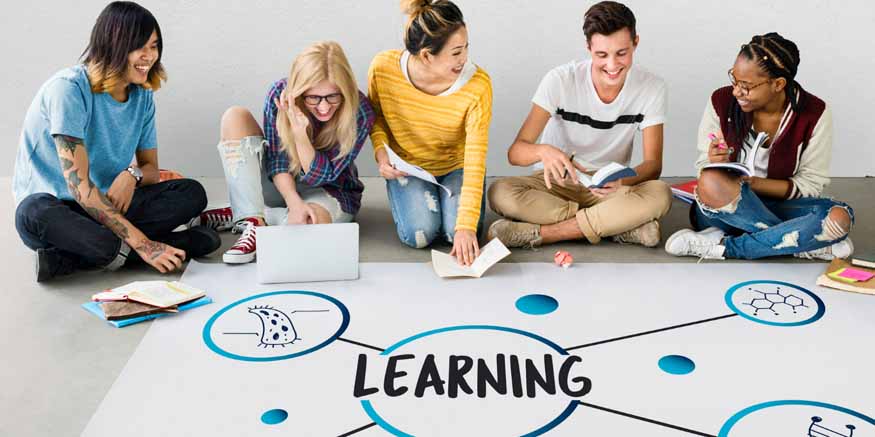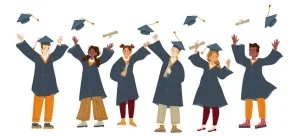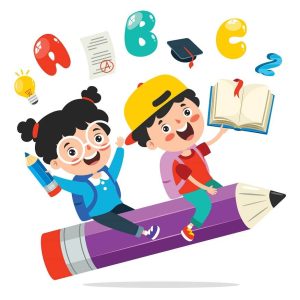The Rise of Experiential Learning in 2025: India’s Shift from Theory to Practice

Are we finally seeing a much-needed change in the Indian education system in 2025? Over the last year or so, there has been a concerted effort from school boards, government chambers, and parents of students to make a decisive shift away from rote memorisation and exam-driven curricula toward a more dynamic, learner-centred paradigm.
At the heart of this change lies experiential learning, an approach that emphasises “learning by doing” and places students in active roles in their own education. Growing demands from parents, civic bodies, and industry have accelerated the adoption of experiential learning in schools across India, transforming how students engage with knowledge and skills. It is truly the beginning of a new era in the Indian education system.
Defining Experiential Learning: What Is Experiential Learning?
At its core, what is experiential learning? The phrase refers to a cycle in which learners engage in an activity, reflect on it, conceptualise new insights, and then act on those insights. This model contrasts with passive lecture-based methodology, emphasising that students gain a deeper understanding when they directly experience things, rather than only reading about them.
In 2025, there has been a notable shift in many Indian schools, which are now drawing on experiential learning theory, influenced by pioneering educational thinkers such as John Dewey, Kurt Lewin, and David Kolb.
This learning theory posits that meaningful learning arises from concrete experiences combined with reflection and abstraction. What this practically means is that schools should increasingly include experiential learning activities, such as field trips, simulations, real-life projects, maker labs, service learning, and internships, into their everyday curriculum.
Types of Experiential Learning: From Field to Lab to Community
In recent years, top educators and curriculum designers across India have been implementing various types of experiential learning to achieve different objectives.
Here are some of the most prominent:
- Project-based learning (PBL): Students undertake extended projects to solve real problems, often interdisciplinary in nature. For example, the Central Board of Secondary Education (CBSE) encourages schools to integrate project-based learning across subjects. Class IX and X students may work on interdisciplinary projects, such as Sustainable Cities (combining science, geography, and economics) or Digital India (linking computer science with social studies and economics).
- Service learning/community engagement: Students engage in social initiatives such as arranging local health camps or environmental clean-ups, linking civic responsibility to coursework.
- Simulations and role play: Use of role-play scenarios, virtual labs, mock trials, or business simulations to let students rehearse real-life challenges.
- Internships and apprenticeships: At higher grades, schools’ partner with local industries or non-profits to provide students with practical workplace experience. For example, the CBSE has formally rolled out Skill Education subjects (AI, retail, tourism, healthcare, and others). Through this, students are required to engage in hands-on industry exposure. In fact, partnerships exist with companies such as Domino’s, Big Bazaar, and hospitals, particularly in the Delhi-NCR region.
- Outdoor and adventure learning: Activities such as trekking, forest walks, camping, or wilderness challenges that emphasise leadership, team dynamics, and resilience.
These hands-on learning activities appeal especially to Generation Z and Alpha learners, who crave engagement, relevance, and meaning in their education.
Why the Surge in 2025? Drivers Behind the Trend
Several converging factors explain why experiential learning is trending strongly in 2025 in India:
- National education reforms & policy shifts. The National Education Policy 2020 emphasises activity-based, inquiry-based, integrated learning – paving the way for more hands-on classrooms.
- Employability and skill demands. Employers today are increasingly demanding critical thinking, creativity, collaboration, and adaptability as priority skills in potential recruits. These are skills nurtured by experiential modes rather than rote drilling.
- Parental expectations and competition. Parents, especially in urban India, are becoming increasingly aware of international standards and thus seek schooling models that go beyond exam scores, favouring institutions that emphasise real-world readiness.
- Edtech and hybrid models. New technologies allow virtual labs, simulations, augmented reality, and easier field data collection; thus, learning by doing in education becomes more feasible at scale.
- Institutional innovation and peer modelling. The Heritage Xperiential Learning School in Gurgaon has become a flagbearer for this school of thought, inspiring others to follow suit. The school has been cited for reimagining classroom structures, teacher training, and student evaluation methods.
- Localised relevance. India’s vast socio-cultural diversity, rural contexts, and community challenges make contextually relevant experiential learning particularly impactful.
Experiential Learning in Schools: Case Studies & Trends
In Indian Schools
- Many CBSE and ICSE schools, particularly in metropolitan areas, are revamping their curricula to include maker spaces, labs, and project weeks.
- International curriculum schools are more likely to adopt experiential learning earlier, as their frameworks (IB, Cambridge) already emphasise inquiry and exploration.
- Inventure Academy, Bangalore, illustrates a model: during “Inventuring” weeks, students and teachers collaborate as a team to build benches, walls, and other structures, fostering a spirit of problem-solving. According to a Times of India report: Under a public-private partnership with Inventure Academy, a private school on Sarjapur Road, the newly rebuilt Tamil school was inaugurated — with new look, feel, and English-medium sections, besides the existing Tamil medium. This is Inventure’s second such venture after a similar success story of their Ramagondanahalli project in Whitefield where it adopted a Kannada-medium school in 2019. What started with 200 students now has 1,100 students.
- Billabong High International School, part of the Lighthouse Learning group, brands itself around innovative, “activity-based learning,” indicating commitment to experiential pedagogies.
Trends in 2025
- Schools are organising learning expeditions, such as multi-day off-site trips, in collaboration with NGOs or local communities, to allow students to engage in environmental, social, and cultural projects.
- Teacher training is being upgraded with workshops in facilitation, reflection techniques, and assessment of experiential outcomes.
- Accreditation bodies and school ranking frameworks (private and governmental) are beginning to incorporate experiential metrics such as project portfolios, student exhibitions, and community outcomes.
- Private preschools are increasingly leveraging hands-on learning activities such as sensory play, play-based learning, and guided experimentation, as foundational stepping stones for later experiential learning.
Benefits of Experiential Learning: What Students and Schools Gain
Adopting experiential learning brings multiple advantages:
- Deeper conceptual understanding. Students often grasp scientific or abstract ideas more robustly when they experiment, test, fail, and refine their knowledge through these experiences.
- Improved retention and transfer. Because learners are actively involved, knowledge is better retained and applied in new contexts.
- Development of higher-order skills. Creativity, critical thinking, collaboration, resilience, and adaptability are all nurtured by learning by doing in education.
- Increased learner motivation and engagement. Students feel a sense of agency and ownership when they drive their learning.
- Bridging theory and practice. Experiential modes help bridge the gap between curriculum and real-world applications, making education more relevant and purposeful.
- Holistic development. Emotional intelligence, social awareness, leadership, and ethical reasoning often emerge during complex, real tasks.
By contrast, purely memory-based pedagogy struggles to cultivate these dimensions, especially in a rapidly changing world.
Challenges in Scaling Experiential Learning
Despite its appeal, the scale-up is not without hurdles:
- Resource constraints. Many schools, particularly in rural or underfunded settings, lack lab infrastructure, materials, skilled teachers, or time in rigid timetables.
- Teacher preparedness and mindsets. Shifting teachers from didactic styles to facilitators of learning requires training, ongoing support, and mindset change.
- Assessment and accountability. Standardised exams remain dominant; aligning experiential outputs with standard metrics (grades, board results) is challenging.
- Equity and inclusion. Ensuring that experiential offerings reach disadvantaged students (in government or low-fee schools) is essential to avoid widening inequality.
- Quality control and consistency. Not every “activity” yields deep learning; careful design, scaffolding, and reflection are critical for meaningful outcomes.
Overcoming these barriers will define whether experiential learning becomes truly mainstream in India by the end of the decade.
Business Idea Spotlight: A Pre-School Experiential Franchise
One promising business opportunity in 2025 is the launch of a pre-school franchise grounded in experiential learning. Early childhood is the ideal time to instil curiosity, foster exploration, and encourage self-directed discovery. Such a franchise model could include:
- A core curriculum of hands-on learning activities, sensory zones, maker corners, nature play, open-ended materials, and child-led exploration.
- Training modules for franchisee teachers in inquiry facilitation, observation, scaffolding, and documentation of learning.
- A central repository of experiential learning activities kits and guides, refreshed annually.
- Partnership with local NGOs or farms for regular field experiences, nature walks, and community projects.
- A parent involvement component: workshops to help parents understand and extend learning by doing in education at home.
- A networked digital platform to share experiential modules, student reflection portfolios, and peer sharing across locations.
Given the preschool sector’s expansion and parental receptivity to progressive education, such a franchise could scale across Indian metros and Tier-II cities.
Experiential Learning and India 2030
By 2030, India’s educational landscape is expected to undergo a significant transformation. If experiential learning continues to gain institutional hold, we may see:
- Hybrid curriculum models, where traditional subjects are taught through project cores or thematic lines.
- Credentialing of project-based portfolios alongside board exam results.
- Public school adoption, aided by government funding and policy incentives, thus bringing experiential modalities into government-run schools.
- Local innovation hubs (rural labs, mobile labs) that travel across villages, democratising access to hands-on experiences.
- Ecosystem linkages, where schools partner with industry, NGOs, and research institutes to co-create real challenges for students to work on.
In 2025, we are already seeing the seeds of this transformation.
Billabong High International School (BHIS), part of the Lighthouse Learning group, positions itself as a chain offering “activity-based learning models” across its campuses, emphasising innovation, independence, and creativity rather than rote teaching.
Thus, for schools or parents looking to engage more deeply in the rise of experiential learning, BHIS already offers models, infrastructure, teacher development, and frameworks to operationalise project-based, inquiry-centric, activity-rich education across India.













